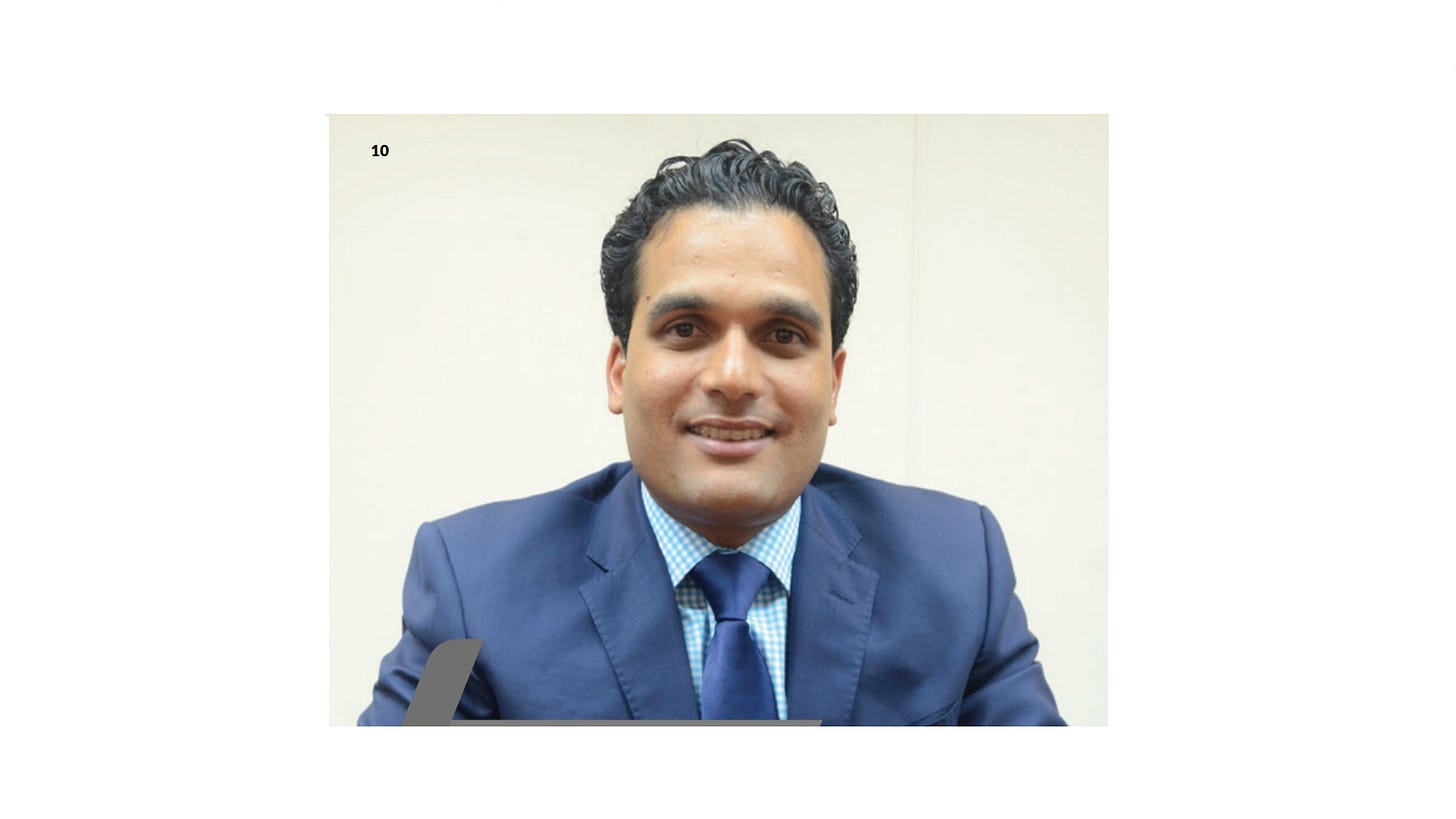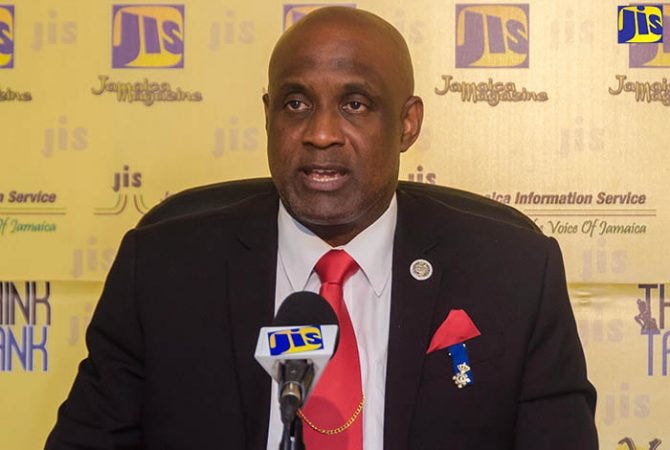Despite Rampant Corruption in Jamaica, Financial Secretary Has Not Ordered Recoveries In Last Seven Years
PART 2: WATCHING THE WATCHDOGS
The high-profile cases of financial mismanagement in Jamaica are many…
Petrojam Limited; Caribbean Maritime University (CMU); the St. Ann Municipal Corporation; the Manchester Municipal Corporation … just a few in recent times that have together cost taxpayers billions of dollars.
Less visible and, perhaps less expensive, are the public servants who mess up intentionally or unintentionally. They may overpay salaries, for example, or incur unnecessary bank charges. They may also utilize the wrong method to award a public contract, without justification, resulting in a higher bill than necessary for the government.
But although the financial secretary can require public officers who rack up losses pay back money to the government, that office hasn’t done so for the past seven full financial years, and is on track for eight, an Access to Information (ATI) response shows.
The current financial secretary, Darlene Morrison, has only officially been in the seat for two years. However, 18º North had asked for information for the past ten years.

As to why no recoveries have been ordered during this time, the Ministry of Finance & the Public Service told 18º North it’s because the financial secretary’s office has not received any recommendations for surcharges, the term for these kinds of penalties.
According to the Financial Instructions of The Financial Administration and Audit Act (FAA Act), the recommendations are supposed to come from an accounting officer - like a permanent secretary - or from the auditor general, the country's chief watchdog of public expenses. (The Public Procurement Act, 2015, enacted last year, stipulates that recommendations can also come from the contractor-general and the Public Procurement Commission.)

But the Pamela Monroe Ellis-led Auditor General’s Department, widely credited for spotlighting corruption, never answered when contacted by 18º North and asked why, in recent years, didn’t it recommend surcharges, one of its only available tools to claw back losses to the government. Nor did it dispute the findings of the ATI response.
In a separate question about how many surcharge recommendations it had issued in the last five years, it said, “Losses identified by the AuGD at MDAs [Ministries, Departments and Agencies] over the last xx years have either exceeded the three year statutory limit from the date of the loss or the MDAs have taken steps to recover such loss.”
It wasn’t clear what period “xx” covered despite 18º North’s follow-up questions.
Some Penalties Withdrawn
The ATI response shows that even when surcharges were recommended, a portion of them weren’t implemented by the financial secretary.
Of the 27 recommendations the office received between 2009 to 2014, only 19, or 70%, of them were applied. Eight, or about 30%, were partially or fully withdrawn.
The reasons for withdrawal ranged from insufficient information that the person was responsible or because instituting the penalty was statute-barred.
Section 20(2) of the FAA Act mandates that no such surcharge should be made after three years from the date of the loss. However, the Public Procurement Act, 2015, which deals more specifically with surcharges from the improper awarding of public contracts, outlines that the three-year clock starts when the loss is found out.
Low Recovery Rate
Even when the surcharges were applied, the ATI response shows, most government entities, which are responsible for the collecting, were negligent.
Of the approximately $14.1 million (US$150,172) in total losses presented by the ministry, only about $2.3 million (US$24,498) was actually recouped, a recovery rate of 16%.
The lowest recovery rate of the 12 government entities mentioned was the Post & Telecommunications Department, which clawed back only 5% of the $875,000 (US$9,965) it was owed from one surcharge. The highest was at the Ministry of Education, which collected 91% of the amounts owed stemming from nine surcharges. That was also the most number of recommended surcharges at any single entity during that time.
Some Entities Collect Without Recommending A Formal Surcharge
Without recommending surcharges, some entities can and do make recoveries on their own, especially when the public officer is the one that benefited directly.
In 2018, for instance, local media reported Dr. Perceval Bahado-Singh, then chairman of Petrojam repaid thousands of US dollars for travel he did not make after allegations of mismanagement became public at the state-owned oil refinery. In addition, according to the auditor general’s CMU report, President Professor Fritz Pinnock, who has now been criminally charged, repaid US$4,760 (J$638,887) after it was improperly given or reimbursed to him, also for travel-related expenses.

But even then, the amounts collected from both men are miniscule compared to the $5 billion (US$38.5 million) in oil losses at Petrojam alone, which was outlined in an auditor general report.
Joseph Patterson, a Canadian-registered chartered accountant and president of Jamaica’s third political party United Independents’ Congress believes that, given the low rate of recovery, the accounting officers and the auditor general need to be doing more.
“The dollar values are staggering,” Mr. Patterson said. “It’s not enough for the bodies that are established for good governance do not carry out their functions to the letter.” The Financial Management Regulations, 2011, that stipulate how the FAA Act should be implemented, also make clear that if the accountable officer doesn’t collect what’s owing, that person “may be held liable to a surcharge for that amount.”
Mr. Patterson adds that not because the entities are recovering some funds means the auditor general should get a pass.
“That is simply something that goes into the auditor’s report to say we find this and this irregularity, and the entity has taken these steps to recover, which we acknowledge, but there remains this amount outstanding, and we have put forward a recommendation to the financial secretary that these amounts be collected forthwith,” Mr. Patterson said. Otherwise, “You’re identifying the loss, but you’re not making the steps necessary to recover the loss so you, now as AG, have made yourself an accomplice to the problem.”
Do Criminal Charges, Leaving the Civil Service or Death Prevent Recoveries?
Sometimes, there are also penalties in the criminal court, like in the *$400 million (US$3.2 million) Manchester Municipal Corporation fraud case, believed to be the biggest in Jamaica’s history involving a municipal authority. Three public officers were convicted and are now subject to prison time and forfeiture of assets estimated to be worth more than $220 million (US$1.8 million). Two outside persons were also found guilty.
But even in instances where there are criminal proceedings, the financial secretary could still recover money. The Regulations specify that recovery of a loss shall not be taken against an officer facing criminal charges resulting from the loss “until the court has dealt with the case or the police have formally indicated that they do not intend to proceed against the officer concerned.” (Some legal experts told 18º North, however, that a surcharge would not be reasonable if the total value of the loss was fully recovered as a result of the criminal proceedings. The Financial Instructions of the FAA Act also state no surcharge shall exceed the value of the loss to the government.)
Even if a public officer is dismissed from the public service, resigns, retires or dies, they could still be on the hook if they’re owing.
Through a civil claim, the Regulations outline that the outstanding balance of any debt due, including from a surcharge, shall be recovered by the government from the officer or from his estate, unless otherwise determined by the financial secretary.
Investigations To Be Made Public
The Regulations also mandate that an accounting officer should ensure that matters of significance arising from the investigation of losses are brought to the attention of the general public, though it didn’t specify what level of detail is to be made known.
In its request to the Ministry of Finance, 18º North had asked for the names of the officers who were recommended for surcharge.
However, the ministry responded that under the ATI Act, the names of those surcharged are “not being disclosed” because it “would involve the unreasonable disclosure of information relating to the personal affairs of the persons.”
###
U.S. equivalents are calculated based on the annual exchange rate averages for the respective years in which losses were reported, as stated on the Bank of Jamaica’s website. If the loss was reported over several years, then the average of those years is used.
*Though the fraud is alleged to be $400 million (US$3.2 million), only a value of over $40 million (US$319,642) was put forward and successfully prosecuted in court.
To see which other government entities aren’t collecting surcharges, and to access the Ministry of Finance’s ATI response to 18º North, click here for FREE access to the table:
This is a free post of 18º North.
For our hard-hitting investigations, we invite you to become a subscriber:
Or give a gift subscription to someone special this Christmas:
See Related Stories:



